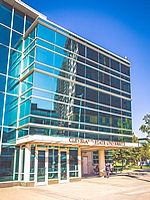

| Title: |
Associate Professor
Coordinator of Early Childhood Teacher Education |
| Dept: | Teacher Education |
| Office: | JH 352 |
| Phone: | 216-687-4592 |
| Email: | K.WHEATLEY@csuohio.edu |
| Address: | 2121 Euclid Ave. JH 352, Cleveland, OH 44115 |
|
| ||||||||
| Education: | ||||||||
|
Ph.D., Educational Psychology, Michigan State University, 1997
M.A., Early Childhood Education, Oakland University, 1991 B.A., Psychology, University of Michigan, 1984 | ||||||||
| Brief Bio: | ||
| I am an Associate Professor of Early Childhood Teacher Education and Coordinator of the Early Childhood Education Program (PK-3). My career has focused on studying and promoting developmentally appropriate, "big-picture" education, that is, education that is effective in the long run for achieving our most cherished goals for the whole child, while strengthening democracy and improving the world.
Prior to coming to CSU in 1994, I was consultant at the High/Scope Educational Research Foundation, where I conducted workshops and consulting on early childhood education throughout the United States and in Canada. At High/Scope, I was also the director of a residential arts, sciences, and leadership program for gifted and talented teenagers. Prior to High/Scope, I worked in a group home with juvenile delinquent boys. I have published in Young Children, Teaching and Teacher Education, Journal of Early Childhood Teacher Education, Contemporary Issues in Technology and Teacher Education, and Educational Psychology Review. I have published several articles on teacher efficacy beliefs, including a 2005 article that made the case for fundamentally re-conceptualizing research into teacher efficacy beliefs. I am currently writing a book that exposes dozens of myths behind the educational accountability movement and explains how the main ideas of the accountability movement (e.g., accountability, standardization, quantifiable outcomes, high-stakes testing, test score pay, a manufacturing model, etc.) undermine educational quality. The book also describes alternatives to test-driven education that are healthier, work better, and are more consistent with our core American values. Finally, the book describes how to re-frame educational debates to help replace high-stakes testing with healthy, big-picture education. I have developed a model of " Big-Picture Education" that focuses on our top goals for children, what is effective in the long run for the whole child, and what strengthens our democracy and improves the world. In terms of practical experience, I have used developmentally-appropriate, "big-picture" education in teaching and leading activities for children and youth from preschool through 12th grade, and in teaching adults. I still lead activities every week for children ages 4-11, always in multi-age groups. I am also a long-time Sunday School teacher and homeschooling/unschooling parent. | ||
| Honors and Awards: | ||
| CSU Faculty Merit Bonus Award (Research)
Outstanding Educational Scholar, Michigan State University | ||
| Creative and Activities: | ||
| I have experienced extensively with using play and learning centers with prospective and practicing teachers, so they will learn to use play and learning centers with the children in their classrooms. | ||
| Research Interests: | ||
| Current Questions:
Why does so much of education focus on what is effective in the short run for a narrow-range of easily testable outcomes instead of what is effective in the long run for the goals we value most for the whole child? How has the framing of educational debates misled the public about what really works best in the long run? How can we effectively re-frame educational debates? What influences educators to persist with educational practices (e.g., homework in elementary grades) for which there is no clear research support? What can be done about this situation? What will it take to get American education to focus on healthy whole-child development and learning, instead of on low-level, and short-term cognitive gains? General Interests: Healthy motivation (intrinsic motivation, autonomous self-regulation) Healthy development and learning Play and other child-initiated learning Meeting standards through play and child-initiated learning Early childhood (PK-3) curriculum Big-picture education Democracy in education Homeschooling/Unschooling Myths about educational effectiveness Conceptual framing of education ideas and debates Educational policy and Educational improvement Teacher efficacy beliefs | ||
| Teaching Areas: | ||
| Undergraduate and graduate courses in curriculum(ECE 401/501)
Graduate courses in child development (EDC 501) The graduate survey course in early childhood education (ECE 500) The exit Seminar in Early Childhood Education (ECE 695) The doctoral course in motivation (EDU 813) | ||
| Professional Affiliations: | ||
| National Association for the Education of Young Children (NAEYC)
American Educational Research Association (AERA) | ||
| Professional Experience: | ||
| See brief bio | ||
| University Service: | ||
| Faculty Senate (and Academic Steering Committee of the Faculty Senate)
Teacher Education Council (College of Education and Human Services) Faculty Affairs Committee (Chair and Member) Peer Review Committee of the College of Education and Human Services (Chair and Member) Multiple Search Committees (Chair and Member) Portfolio reviewer/Portfolio Remediation Board Coordinator of Early Childhood Education Program | ||
| Professional Service: | ||
| Reviewer of many conference proposals, as well as manuscript reviewer for numerous journals.
Reviewer of early childhood curriculum texts for major publishers. Reviewer of college and university program proposals for the Ohio Board of Regents. Long-time member of Advisory Committee for the Cuyahoga Community College Early Childhood Program. | ||
| Community Service: | ||
| Volunteer, East Side Homeschool Learning Co-op
Volunteer, Homegrown Learners Co-op Founding Board Member, FLOW (Free Learners on the Westside) Co-op. | ||
| Research Grants: | ||
| Small grants to support my teaching. | ||